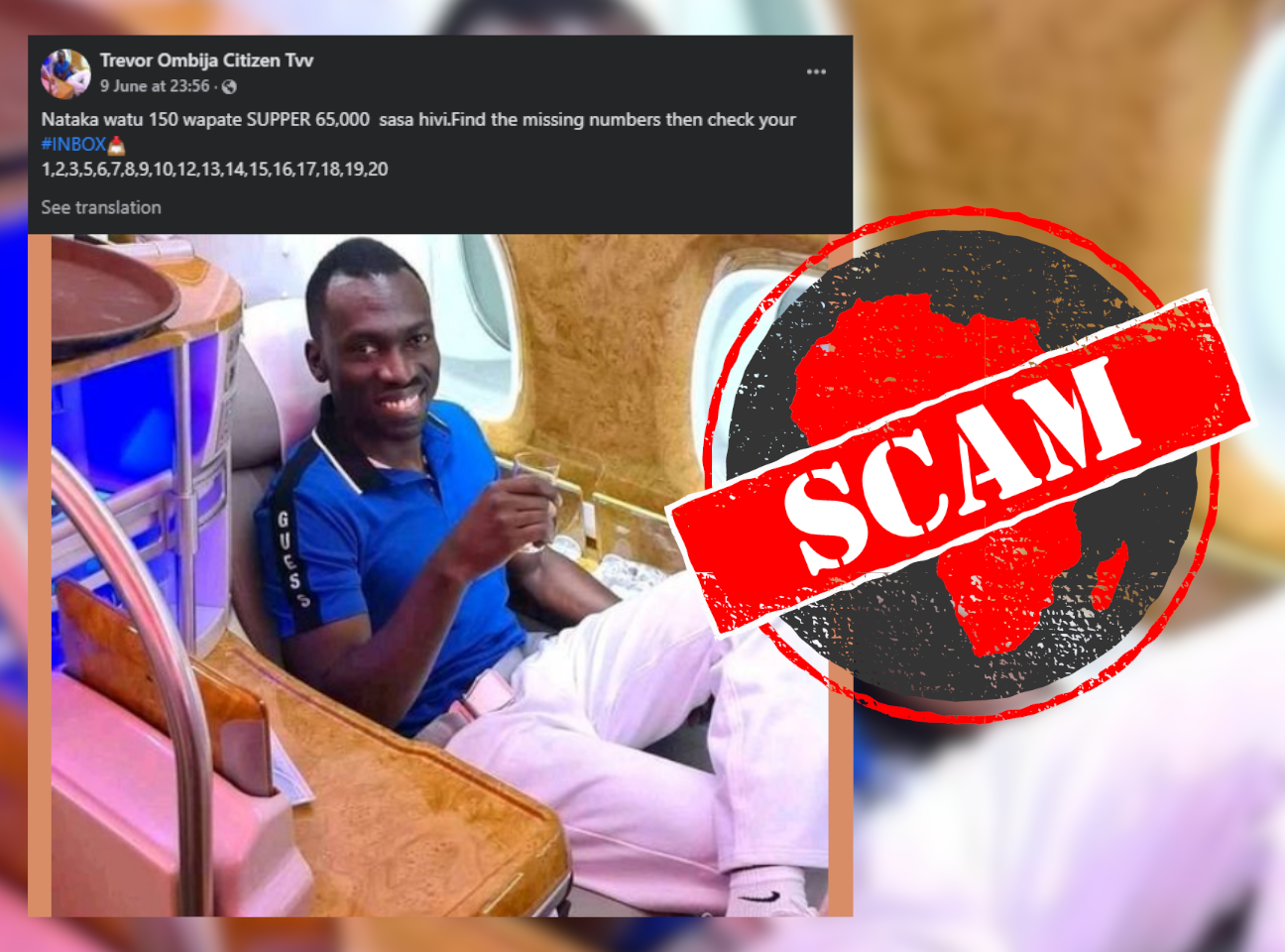IN SHORT: Promotions by one of the country’s well-known media personalities would ordinarily draw the attention of many. But this one is not legitimate.
The Facebook account Trevor Ombija Citizen Tvv has been running promotions on a Facebook group in Kenya that has over 83,000 members.
The account uses the name and photo of Trevor Ombija, a news anchor at Kenya's Citizen TV, a privately owned station that currently has the largest reach in the country.
One post, dated 9 June 2023, reads: “Nataka watu 150 wapate SUPPER 65,000 sasa hivi.Find the missing numbers then check your #INBOX 1,2,3,5,6,7,8,9,10,12,13,14,15,16,17,18,19,20.”
This loosely translates to: “I want 150 people to get SUPPER 65,000 right now.Find the missing numbers then check your #INBOX 1,2,3,5,6,7,8,9,10,12,13,14,15,16,17,18,19,20.”
Another post, dated 12 June, reads: “TUPEE CORRECT ANSWER TUKUZAWADI 35,000 KSH FROM ROYAL MEDIA GROUP, NI MWEZI UPI HUKO NA SIKU CHACHE KWA MWAKA, NATAKA 257 PEOPLE.”
This translates to: “GIVE US THE CORRECT ANSWER AND WE WILL GIFT YOU 35,000 KSH FROM ROYAL MEDIA GROUP, WHICH MONTH OF THE YEAR HAS THE FEWEST DAYS, I WANT 257 PEOPLE.”
Royal Media Services is the largest media house in Kenya, with three popular TV stations including Citizen, and 13 radio stations.
But is this account really run by the news presenter? We checked.

Ignore fake Facebook account
The timeline of the account shows only four posts, all in a public group promising to give money to Kenyans who engage with the posts.
The activity on this account is uncharacteristic of a news presenter’s social media platform.
Ombija’s official Facebook page is verified and has no posts promising loans of any kind.
On 31 March, he dismissed several accounts using his name to defraud Kenyans.
“SECURITY ALERT: This is not my account. I am not giving any loans. DO NOT share your personal details with anyone. BEWARE OF FRAUDSTERS!” he wrote.
Republish our content for free
For publishers: what to do if your post is rated false
A fact-checker has rated your Facebook or Instagram post as “false”, “altered”, “partly false” or “missing context”. This could have serious consequences. What do you do?
Click on our guide for the steps you should follow.
Publishers guideAfrica Check teams up with Facebook
Africa Check is a partner in Meta's third-party fact-checking programme to help stop the spread of false information on social media.
The content we rate as “false” will be downgraded on Facebook and Instagram. This means fewer people will see it.
You can also help identify false information on Facebook. This guide explains how.


Add new comment